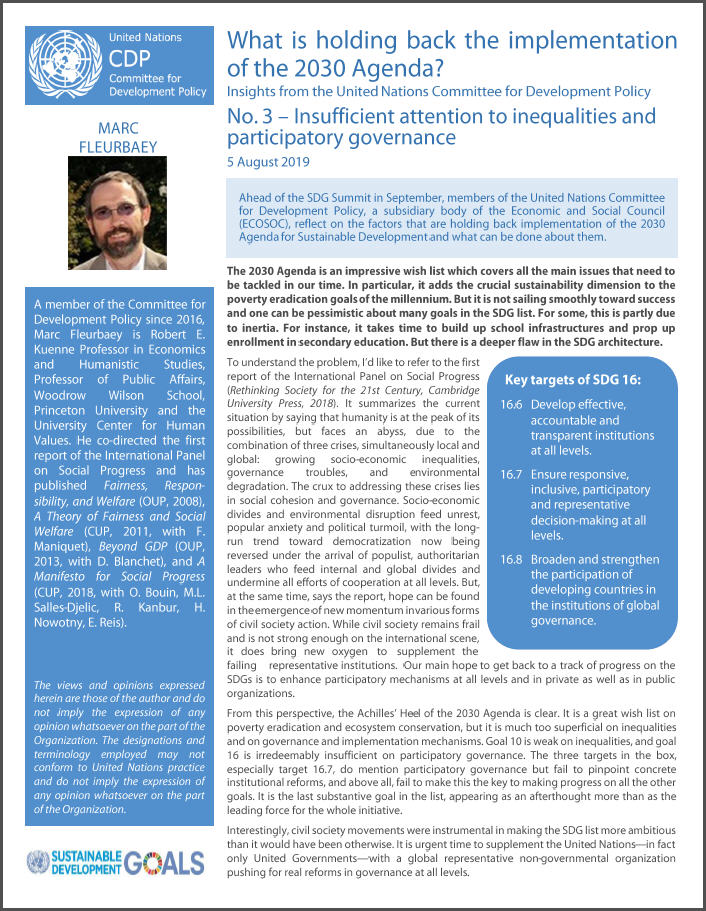
No. 3: Insufficient attention to inequalities and participatory governance
What is holding back the implementation of the 2030 Agenda? Insights from the CDP
by Marc Fleurbaey
The 2030 Agenda is an impressive wish list which covers all the main issues that need to be tackled in our time. In particular, it adds the crucial sustainability dimension to the poverty eradication goals of the millennium. But it is not sailing smoothly toward success and one can be pessimistic about many goals in the SDG list. For some, this is partly due to inertia. For instance, it takes time to build up school infrastructures and prop up enrollment in secondary education. But there is a deeper flaw in the SDG architecture.
To understand the problem, I’d like to refer to the first report of the International Panel on Social Progress (Rethinking Society for the 21st Century, Cambridge University Press, 2018). It summarizes the current situation by saying that humanity is at the peak of its possibilities, but faces an abyss, due to the combination of three crises, simultaneously local and global: growing socio-economic inequalities, governance troubles, and environmental degradation. The crux to addressing these crises lies in social cohesion and governance. Socio-economic divides and environmental disruption feed unrest, popular anxiety and political turmoil, with the long-run trend toward democratization now being reversed under the arrival of populist, authoritarian leaders who feed internal and global divides and undermine all efforts of cooperation at all levels. But, at the same time, says the report, hope can be found in the emergence of new momentum in various forms of civil society action. While civil society remains frail and is not strong enough on the international scene, it does bring new oxygen to supplement the failing representative institutions. Our main hope to get back to a track of progress on the SDGs is to enhance participatory mechanisms at all levels and in private as well as in public organizations.

From this perspective, the Achilles’ Heel of the 2030 Agenda is clear. It is a great wish list on poverty eradication and ecosystem conservation, but it is much too superficial on inequalities and on governance and implementation mechanisms. Goal 10 is weak on inequalities, and goal 16 is irredeemably insufficient on participatory governance. The three targets in the box, especially target 16.7, do mention participatory governance but fail to pinpoint concrete institutional reforms, and above all, fail to make this the key to making progress on all the other goals. It is the last substantive goal in the list, appearing as an afterthought more than as the leading force for the whole initiative.
Interestingly, civil society movements were instrumental in making the SDG list more ambitious than it would have been otherwise. It is urgent time to supplement the United Nations—in fact only United Governments—with a global representative non-governmental organization pushing for real reforms in governance at all levels.
Download PDF(238k)


Follow Us